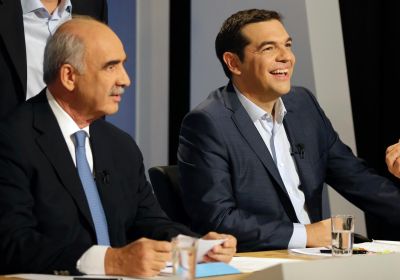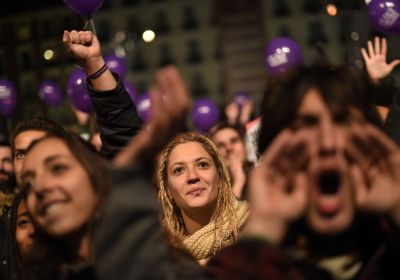
What was the central message of the December 20 Spanish general elections, which was “won” by the governing conservative People's Party (PP) of Prime Minister Mariano Rajoy with only 28.72% of the vote, 3.6 million votes less than the last national poll in 2011?
Why did the opposition Spanish Socialist Workers Party (PSOE) greet its worst ever result —22.01%, 1.4 million votes less than 2011 — with a sigh of relief?
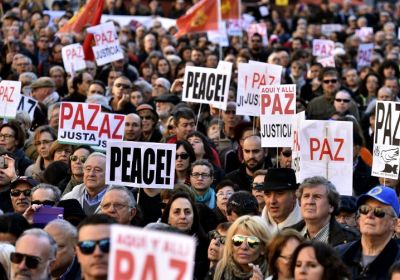
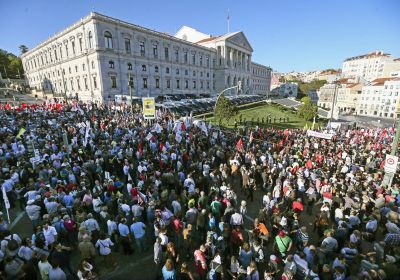
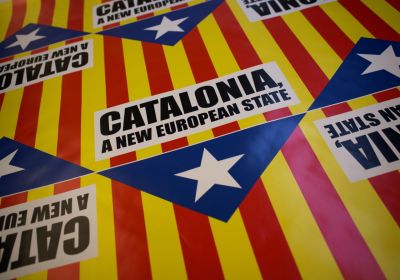

 Podemos activists
The December 20 elections in the Spanish state will attract the usual large field of runners. Challengers will represent every imaginable position along the Spanish state's two main political dimensions — the left-to-right social axis and the axis of national rights.
This second dimension reaches from the centralism of the ruling People's Party (PP) to the pro-independence stance of various Catalan, Basque and Galician parties.
Podemos activists
The December 20 elections in the Spanish state will attract the usual large field of runners. Challengers will represent every imaginable position along the Spanish state's two main political dimensions — the left-to-right social axis and the axis of national rights.
This second dimension reaches from the centralism of the ruling People's Party (PP) to the pro-independence stance of various Catalan, Basque and Galician parties.

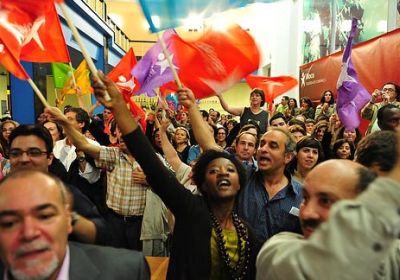
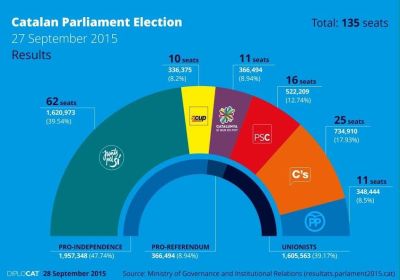
 SYRIZA pulled off a remarkable victory at the September 20 Greek election. Although burdened by its acceptance of the draconian austerity measures in the third memorandum imposed by Greece's creditors and eight months of rule in the midst of recession, closed banks and capital controls, SYRIZA's vote fell by only 0.88% and its parliamentary seats by just four.
SYRIZA pulled off a remarkable victory at the September 20 Greek election. Although burdened by its acceptance of the draconian austerity measures in the third memorandum imposed by Greece's creditors and eight months of rule in the midst of recession, closed banks and capital controls, SYRIZA's vote fell by only 0.88% and its parliamentary seats by just four.
 More than 1 million people took part in a pro-independence march in Barcelona on September 11, Catalonia's national day.
A year has passed since the British establishment won the September referendum on Scottish independence with a final campaign week of blackmail, dirty tricks and multi-party sworn promises yet to be kept.
More than 1 million people took part in a pro-independence march in Barcelona on September 11, Catalonia's national day.
A year has passed since the British establishment won the September referendum on Scottish independence with a final campaign week of blackmail, dirty tricks and multi-party sworn promises yet to be kept.
